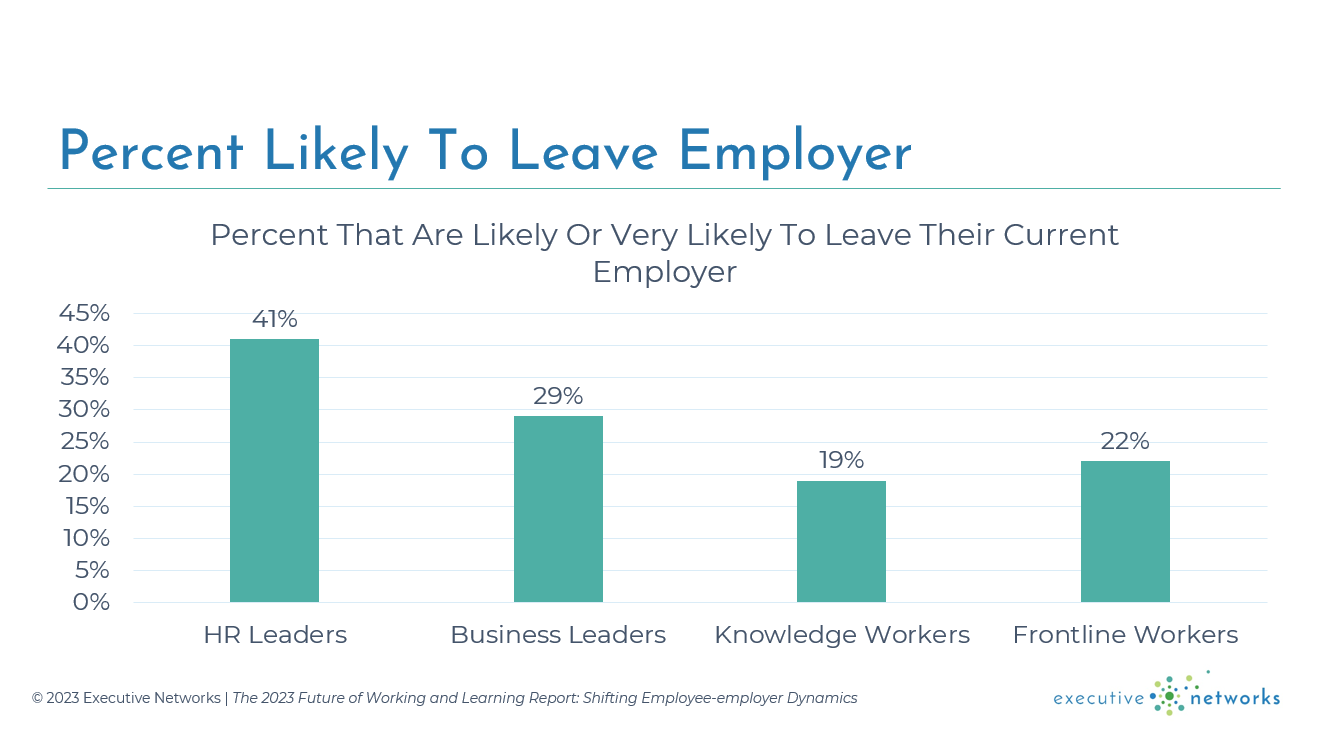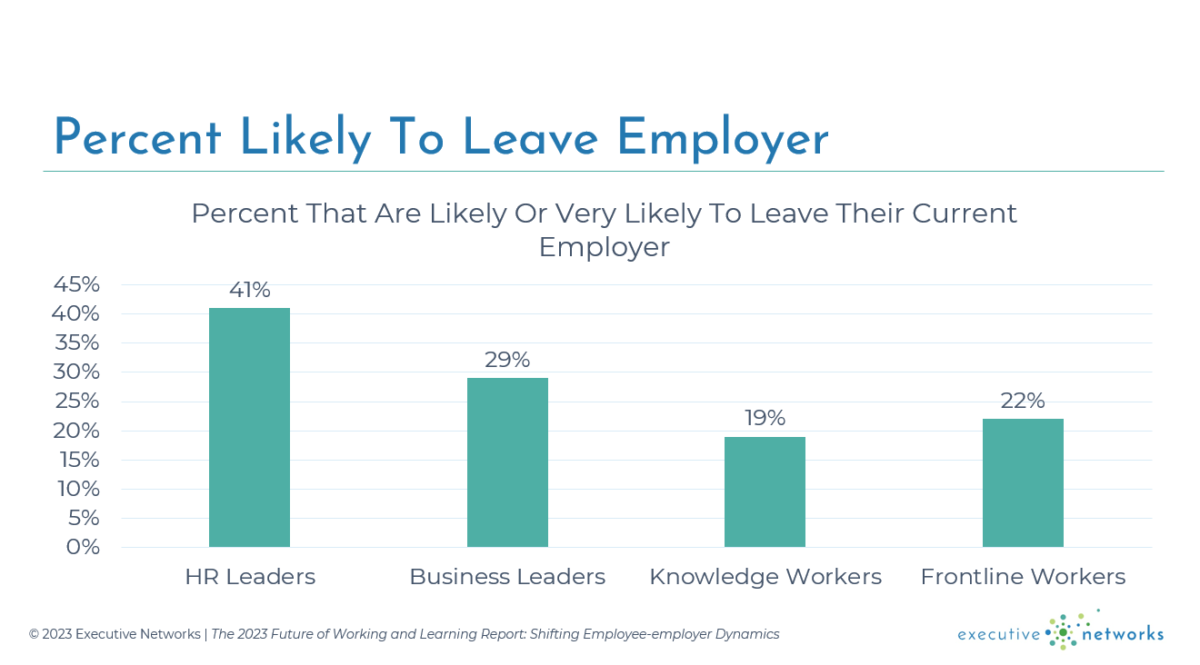Feeling worn, tired and crispy on the edges like a piece of burnt toast? Chances are, you’re an HR leader.
It turns out that HR leaders ranked the highest among other professionals when it comes to two key burnout metrics, according to Executive Networks’ 2023 Future of Working and Learning Report released Thursday.
According to a survey of more than 1,300 HR leaders, business leaders, knowledge workers and frontline workers across the globe, HR leaders were substantially more likely than others to be at risk of leaving their current employer in the next 12 months.

Additionally, 37% of HR leaders say they have trouble balancing their work and home life—the largest percentage of the four groups, the report finds.
Why burnout is hitting HR leaders in a big way
For the past three years, HR leaders have been sitting front and center in the hot seat.
First, pandemic-induced lockdowns rolled in, alongside a need for employers, led by HR, to support employees and their families. That was followed by global pandemic vaccination requirements that required new corporate policies as employees trickled back into the office. Then came the peak of the Great Resignation, followed by a wave of layoffs as the economy showed recessionary signs.
That has put a lot of pressure on HR leaders, who have had to lead while simultaneously going through the same changes as other employees.
“It’s like Ginger Rogers doing the same moves as Fred Astaire, but backwards and in heels. That’s the HR function. We are feeling all the same things as everyone else, but we have to keep a steady hand and keep the organization moving forward,” says Allessandria Polizzi, founder of resiliency training and stress-reduction firm Verdant Consulting. Polizzi will present the closing keynote at the Health & Benefits Leadership Conference coming up in May on the topic of HR burnout. Click here to learn more and register.
From hot seat to ejection seat
Greater complexity, rapid change and higher demands in navigating the HR landscape are prompting close to half of HR leaders to head to the door within the next year, says Jeanne Meister, executive vice president of HR research and leadership organization Executive Networks.
“HR leaders are dealing with things that they haven’t dealt with before: increased burnout, increased mental health issues among the workforce and the noise around return to the workplace and workplace flexibility that is making the job more complicated than ever before,” Meister says.
Where are departing HR professionals going? Some move on to niche roles in HR at other organizations, while others look to become self-employed HR consultants or leave the HR industry altogether.
“When I talk to my colleagues within HR, many of them are looking to do non-core HR like learning and development, executive development or look for an organization that will embrace strategic HR,” Polizzi says.
She adds that most C-suite executives believe HR is mostly an administrative function, yet hire HR leaders to do strategic work. That disconnect is creating conflict and turmoil within the HR leadership role resulting in burnout and turnover within the function.
Related: How HR leaders can stay ahead on mental health support
HR leaders find work/life balance is basically a bust
Although HR has a number of resources within easy reach to help employees bring greater balance to their work and home life, over a third of HR leaders, according to the Executive Networks study, apparently do not take advantage of those same resources. And they could be suffering as a result.
“Have you ever heard ‘the cobbler’s children have no shoes’?” Polizzi says. “Just because we know these [work/life resources] doesn’t mean we’re confident or capable in implementing it for ourselves.”
HR professionals often face unique emotional hazards in their role that make achieving that balance difficult, she adds—namely, that they take on employees’ emotional issues. This can leave them with compassion fatigue and toxin handling, which comes from non-stop giving of themselves without adequate time to recover after listening to employees’ toxic comments.
“HR is seen as a service function where you’re always on. You’re going to see similar burnout on your IT teams, but the difference is the emotional labor that the HR function is providing,” Polizzi says.
But, Meister adds, given the influx of pressures on HR in the last three years, HR professionals may not feel like they have time to take the necessary steps to achieve balance.
Related Link: Work-Life Blend is the New Work-Life Balance – HR Executive
Burnout busters
HR leaders can take a number of steps to alleviate burnout, the most important of which is following the advice they dole out to employees. Regardless of where you sit on the org chart, have a conversation with your direct supervisor and convey the issues that are contributing to your burnout.
“It starts with you being proactive and having that conversation,” Meister says.
Secondly, remember that you deserve to be happy, Polizzi says. And happiness starts with being kind to yourself and blocking out destructive and undermining thoughts.
“It’s nearly impossible to get ourselves back into a good place once we’ve reached that darkness,” she says. “So, as an HR professional, spend time caring for yourself.”
The post Burnout for HR leaders isn’t getting any better. What can be done? appeared first on HR Executive.
